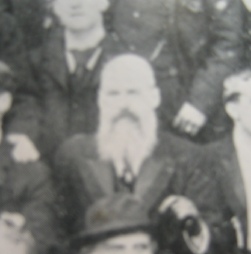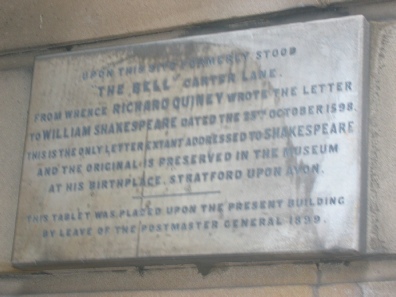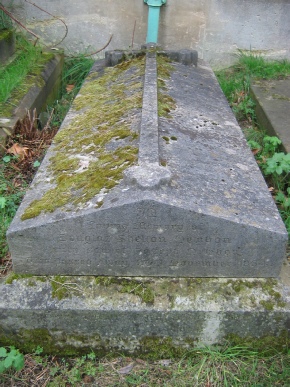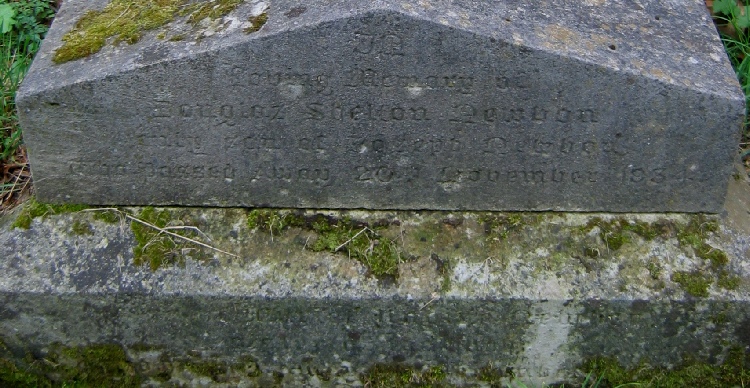

Early years and professional life
The 5th surviving son of James Shelton Newbon and his wife Ann, Joseph Newbon was born at Blackheath Terrace, Greenwich on November 30th 1840 and grew up in Hammersmith with his brothers James Thomas Peter, Thomas, Henry George, Charles Evans and Septimus Baily. He received his education at King’s College School, London, and then, like his father and grandfather before him, became a solicitor. While only in his early 30s (following the deaths of his father in 1863 and his elder brother

Civic duties and local affairs
In 1873 Joseph became vestry clerk to the parish of St Ann, Blackfriars and soon afterwards wrote A History of the Parish of St Ann, Blackfriars, in the Ward of Farringdon Within, in the City of London, which was published in 1876 by Judd & Co. of St Andrew’s Hill (the street in which Joseph’s great-
From the mid-
In 1877 Joseph Newbon founded the United Wards’ Club of the City of London, his most important legacy to the City of London. This began as a group of prominent citizens of Blackfriars but soon grew into a prestigious organisation covering the whole of the City of London; it continues to this day. Each October, at their Founders’ Day banquet (held at one of the City livery halls), the club pays tribute to Joseph and the other men present at that inaugural meeting. who were responsible for founding the club. Again, we sense the

In 1899 Joseph was again busy fighting another cause – this time for the erection of a plaque to mark the site of The Old Bell Inn in Carter Lane. It had been at a later Bell Tavern on the same site that the United Wards’ Club had first met in 1877, but the plaque commemorated the fact that, several centuries earlier, The Bell was given as Richard Quiney’s address when he wrote the only surviving letter to William Shakespeare.
Guildhall Library now houses a large folder of correspondence from and to Joseph Newbon concerning this memorial, which was duly erected on the wall of the Post Office building in Carter Lane. Among his correspondents were the Duke of Norfolk (then Postmaster General) and the Librarian


|
Born: |
November 30th 1840 (Blackheath) |
Died: |
April 23rd 1901 (Putney) |
|
Father: |
James Shelton Newbon (1806- |
Mother: |
Ann Newbon, formerly Brockelbank (c.1813- |
|
Spouse: |
Laura Edith Daniel (1848- |
Occupation: |
Solicitor |
|
Children: |
Douglas Shelton Newbon (1872- |
||
which Joseph Newbon arranged to be put up in 1899
Family life and final years
Joseph Newbon married Laura Edith Daniel in 1870 at Brixton. The couple had two children, a son Douglas Shleton Newbon and a daughter Muriel Undine Newbon. Laura Newbon died at the age of only 33 in 1880 at Margate; Joseph outlived her by 21 years, dying at his home at 8 Ruvigny mansions, The Embankment, Putney on April 23rd 1901 at the age of 60 -
Joseph and Laura Newbon were buried in the same grave as Joseph’s parents and his elder brother Thomas in West Brompton Cemetery, London SW10. Their son Douglas died in 1934, aged 63, and their daughter Muriel died in 1949, aged 74; neither married. They are buried together in a plot (shown right) in the same cemetery bought by their father, very close to his own grave.
his sister Muriel Undine Newbon, at the base, has weathered less well.
To Top of Page
DEATH OF MR. JOSEPH NEWBON.
Many of our readers – and the members of the United
Wards Club in particular – will learn with regret of the
death on Tuesday last, after only four days’ illness, of Mr.
Joseph Newbon, the founder of the club. The deceased,
who at one time represented the Ward of Farringdon
Within on the Court of Common Council, retiring after
a few years’ service on account of pressure of business,
was in the early days of the club’s career one of the most
regular of attendants at the meetings, and practically its
moving spirit. It was founded with the idea more
especially of combining in a local association the principal
inhabitants of the wards of Farringdon Within and
Without, and for a long while its membership was to all
intents and purposes thus confined. Of late years, how-
now the club is representative of the City at large, and in
that way justifies its title. Mr. Newbon was a solicitor
by profession, and enjoyed a large practice. He was a
keen antiquarian, and many readers will remember that
it was on his initiative that a few years ago a tablet was
erected in Wardrobe-
take place to-
placed on the coffin as a mark of the club’s affectionate
regard.
|
1841 |
- |
St Mary in the Castle, Sussex, with his parents and elder brothers |
|
1851 |
- |
at home with his family at Elms House, Hammersmith |
|
1861 |
- |
at home with his mother and 3 brothers in Hammersmith (his father was in Brighton |
|
1871 |
- |
at home at Firbow Road, Kensington (listed as Newborn), with his wife Laura |
|
1881 |
- |
in Brighton with his daughter Muriel Undine Newbon and his youngest brother Septimus
Baily Newbon, who was working as his clerk. 3 servants lived with the family (a chambermaid,
a cook and a nurse, Maria Lott, who was to stay in service with Joseph’s family for
many years). In 1881 Joseph’s son Douglas Shelton Newbon can be found as a 9- |
|
1891 |
- |
at home at ‘Utica’, Barrowgate Road, Chiswick with his children and 2 servants (Maria Lott, who by this time had become the housekeeper, and Eliza Ellen Lott, presumably her younger sister, who was the cook). Douglas Shelton Newbon is listed as a ‘solicitor’s clerk’, so he was presumably working for his father. Joseph’s younger brother Septimus Baily Newbon was living in Deptford at this time but was still listed as a ‘solicitor’s clerk’. |
|
1901 |
- |
at his final home, 8 Ruvigny Mansions, on the Embankment at Putney with his daughter Muriel Undine Newbon and their housekeeper Maria Lott. Douglas Shelton Newbon can be found working in Leicester; he became a newspaper representative. |
| Site Map |
| Background to my research |
| Background to the surname NEWBON |
| Documents available and sources used |
| Name index |
| Walter Newbon's descendants |
| Northamptonshire Newbons |
| Redbourn, Hertfordshire |
| James Shelton Newbon |
| Henry Newbon |
| The Crickmer family |
| The Newbon Family and the City of London |
| Charles Evans Newbon |
| Joseph Newbon |
| The Brockelbank Family |
| The United Wards' Club of the City of London |
| John Newbon |
| The Children of John Newbon |
| World War I |
| Walter Thomas Newbon |
| The Newbon Family of Northamptonshire |
| Northamptonshire, the early home of the Newbon Family |
| King's Cliffe |
| Records of King's Cliffe |
| Maps of King's Cliffe |
| Links with elsewhere |
| News 2014 |
| News 2013 |
| News 2012 |
| News 2011 |
| News 2010 |
| News 2009 |
| News 2008 |
| Updates |
| To do |
| Guestbook |